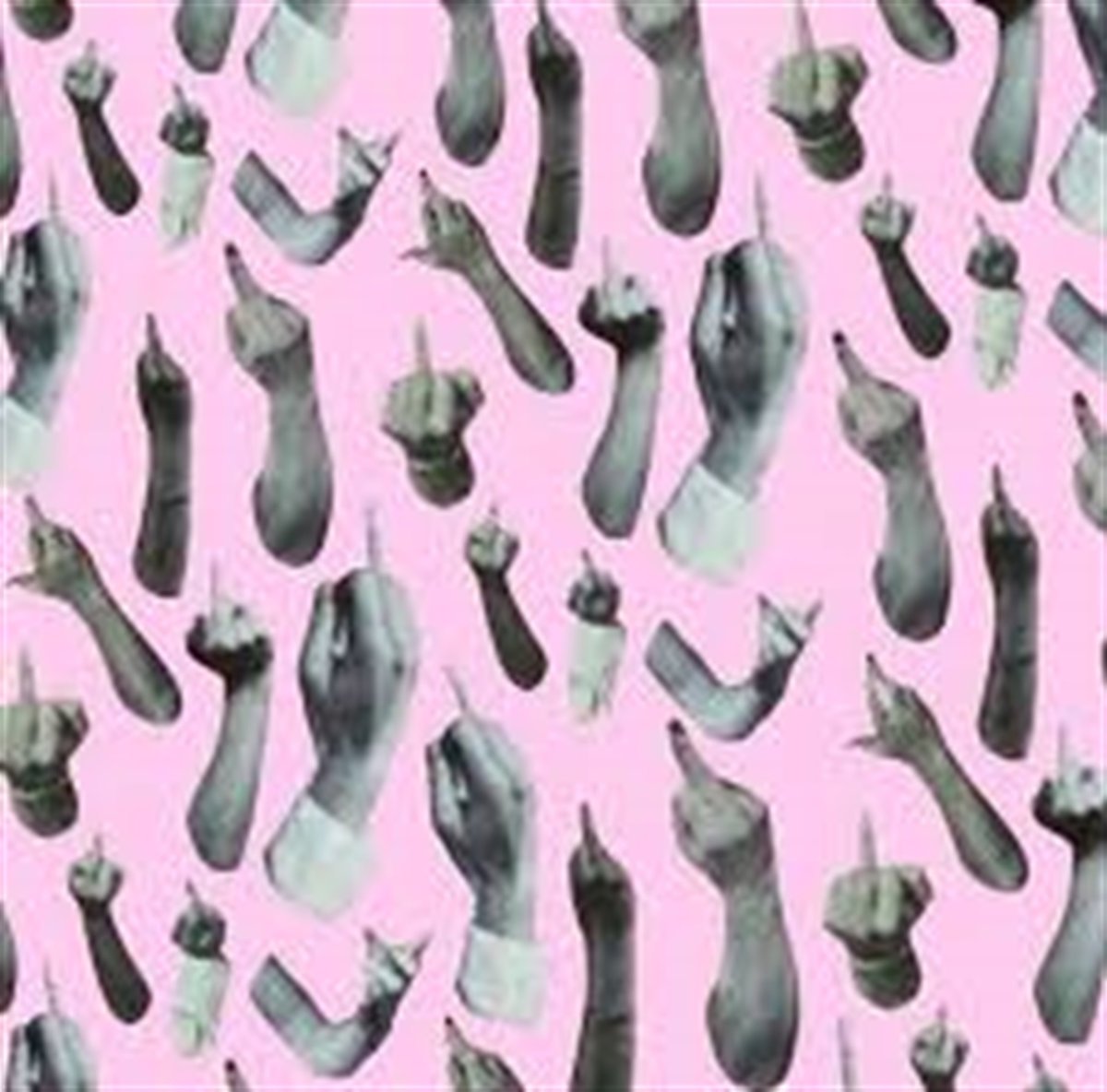-
Content count
9 -
Joined
-
Last visited
Community Reputation
0 NeutralAbout Jeffery Charles Nighswander
-
Rank
Wolfpup
Recent Profile Visitors
The recent visitors block is disabled and is not being shown to other users.
-

Who’s Afraid of Virginia Woolf?
Jeffery Charles Nighswander replied to Cameron H.'s topic in Unspooled
I commented about the recap of the last episode on this episode and how Paul and Amy chose to pretend that they forums/facebookgroup/andtwitter accounts were talking about Ashley and not Amy's clearly problematic apologist review of "Gone with the Wind" that comes from her white privilege perspective and it was deleted. You know, I like this podcast, but I don't like cowardice. I guess if you just delete things and move on it's like they never happened huh? I could deal with Amy's problematic view of such a racist film, but not with the cowardice of Paul and Amy in pretending no one had a problem with it. Feel free to delete this comment to, but don't feel free to have self-respect afterward. -
I don't remember using such phrases. On the other hand, let me help people such as yourself, understand why we are at this point...For a few years, around 2011-2015 we made people really scared to be called out for being bigots...and then people got mad that they were made to be scared and that their money got threatened based on their personal conduct and thoughts... Then they fought back...and in the meantime, Donald Trump got elected. #Facts.
-
I got kicked off of the Facebook group for pointing out that it was cowardly for the podcast to pretend that the forums and such were talking about how unlikeable Ashley was, and not the truth which was how Amy's apologist review of the film was problematic. That's what the majority of the comments here, and on the Facebook group was about though. Every other time Amy or Paul caught heat for their take on a movie they talked about, but when it made Amy look like a white privilege recipient making apologies for a film that glorifies a film about the Confederate South they suddenly pretended like the majority of comments weren't about what they were about. Sad. Sad that the podcast took such a cowardly out in ignoring the truth, and sad that the try-hard groupies on the facebook group kicked me off for pointing it out. I mean, if you can't stomach the truth then fuck you. Feel free to trash me for pointing out the facts...perhaps it will earn you some points with your celeb crushes.
-
Fair enough.
-
I could agree with that, but to my point, it definitely didn't do anything to paint anyone in a negative light. I don't feel the film, in relation to racism, does this to any of the white characters. No one is seen as being wrong for being racist. They may have negative characteristics but those traits are negative in a way that does nothing to chastise them for being racist. Compared to "A Clockwork Orange" where the entire film is painting Alex as a monster. I was just commenting on how Amy seemed to hold Kubrick accountable a whole lot more for any kind of positive feelings the viewer may get from Alex's likable traits as opposed to this movie which really does celebrate a society that was horrendously racist. It just seemed kind of hypocritical. Then again, I did listen to both episodes in succession. In my opinion "A Clockwork Orange" was a film that clearly was meant to shock you in regards to the evil it showed and "Gone with the Wind" seemed to be a film that didn't really even understand that it was showing you evil.
-
I have to say, I love this podcast but am kind of new to it and the last two episodes I watched was the one on "A Clockwork Orange," and this one. There seems to be a real hypocritical nature to the way that Amy condemned Kubrick for trying to make Alex likable, and how she defended this film, which clearly tries to make you like Scarlett...a slave owning racist. It seems to me that Clockwork Orange went out of its way to show no redeeming characteristics in Alex, yet this film was a love letter to the Confederate south. Amy gave no slack to Kubrick but bent over backward to misinterpret scenes to make this film less horrendous. Take her interpretation of the scene where they discuss how The Union (northerners) might be able to "lick" the Confederacy in a battle. She tried to say that this scene was the film trying to show how it thought the war was "dumb," but clearly this was a scene designed to show the Confederates as plucky optimists while still letting them appear brave by pointing out that the North had a clear advantage. The scene was CLEARLY designed to make the Confederates look better and was in no way intended to show that the film was painting them as stupid for fighting the war. In the end of the scene, Ashley was supposed to look brave for fighting for Georgia...aka The Confederacy, THAT'S why they had him point out how The Union had a clear advantage. I'm not throwing shade on Amy, but I think she clearly had a childhood connection to this movie and was reviewing it with rose colored glasses. She clearly didn't have any connection to "A Clockwork Orange" and tried hard to judge it as misogynistic and as unsympathetic to the victims in the film. To be able to make those connections for one film and not to understand "Gone with the Wind" as the love letter to the racist confederate south that it was obviously meant to be, just seems weird. I mean seriously though, if you thought "A Clockwork Orange" made its evil main character look better than "Gone with the Wind" made its evil main character look...then you weren't reviewing these two films with an equal level of objectivity. "Gone with the Wind" clearly loved its racist slave-owning characters. To see it as anything else is to inject your own fictional backstories and theories into it. At face value, it's clear which movie glorified evil and which didn't. Kubrick didn't try to make you fall in love with his monster. Still loving the podcast, and still think Amy's great, but watching these two particular episodes back to back kind of made her lose just a smidgen of credibility in the objectivity of her reviews of films. Just saying...
-
 Jeffery Charles Nighswander changed their profile photo
Jeffery Charles Nighswander changed their profile photo
-
Love the podcast, but I'm not sure you understood the point of this film. To me, the point of the film was to show how disconnected from the consequences of his actions and how unconcerned with morality Alex was. You aren't meant to care for him or to like him, but rather you're shown his viewpoint, through narration, and not shown any concern/sympathy/or relation to his victims in order to understand how he doesn't concern himself with those things at all. Also, he's not meant to be shown as a victim after he's made to be sickened by violence or sexuality by the government program. The film is showing you how he no longer functions in such a violent society. His friends went on to become cops. His victims go on to torture him. He was robbed not only of his free will but of his ability to survive in a society where everyone uses their position or capability for violence to force their will on other people. He's a rapist who is raped mentally by the government brainwashing program and is left shattered and unable to go back to his normal life. What happens to him is a metaphor for what he did to the women he raped and the people he crippled. It's not that he becomes a victim it's that Kubrick is showing you that the government/society does the same kind of damage but on a mass scale by controlling how we see the world and how we function in it. Also, it baffles me that everyone who watches this film basically says "well, he's obviously evil," because he kills and rapes people and then goes on to say that Kubrick is glorifying such acts, trying to make them comical or make light of them, or that he's trying to make Alex likable. You didn't get that impression. You clearly knew he was evil. How many of US do you think are dumb enough to not know that? Were their copycat crimes? I mean, not really. There were sick people who wanted to rape and kill people and who either got associated with this movie by the press or because they wanted an excuse for their actions or a way to paint them as rebellious or "inspired" after they got caught. We don't blame artists for people who create nothing but destruction hurting people and then invoking their name. Does rap music create violence? Does heavy metal music? No. Do you want to know what does create violence? Indifference to the suffering of others caused by overwhelming self-centeredness developed in a latchkey childhood which turns a kid into the kind of teenager who feels that the great tragedy of their life is having their favorite composer/film franchise/ comic book character/form of entertainment ruined by adults. It's like how more people are concerned with whether or not they can listen to Micheal Jackson anymore as opposed to the kids he molested. Alex is a millennial playing an exaggerated version of the knockout game. a pregnancy pact, a fake campus rape allegation, the lick food challenge, revenge porn, or huffing fermented shit out of a ziplock bag. Burgess was right. We decided to have our own lives was more important than being involved parents and our kids became detached monsters who seem to be incapable of understanding how their actions can affect other people. The entire point of the film was that society will become so fucked up in the future that our youth will become vapid, morally bankrupt psychopaths who can't feel anything for anyone besides themselves and if we ever do force them to be the idealized picture of good citizens they wouldn't be able to function in a society so fucked up it made them that way in the first place. Is Alex evil? Of course, and you have to deny the "of course" part in order to make any accusations against this film.

